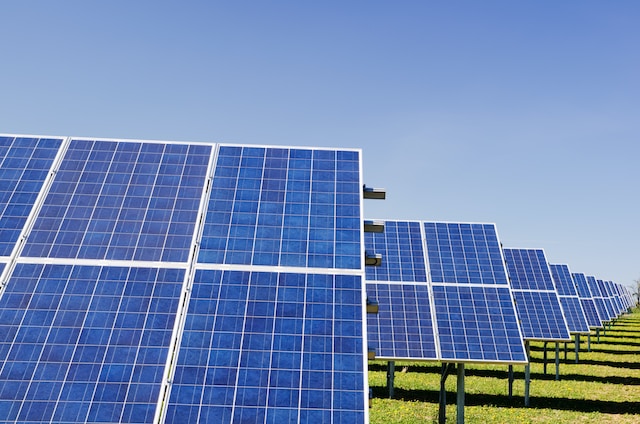Nova Scotia Community College has now introduced a two-year renewable energy program at Belize City Institute for Technical and Vocational Education and Training that aligns with national energy policy while being founded upon sound economic and financial analysis.
Belize’s greenhouse gas emissions may be small, yet mitigation remains crucial for small states like Belize as it demonstrates credibility for discussions surrounding the Paris process, leverages external finance and promotes green economic development.
Residential
The residential sector – comprising homes and businesses – accounts for almost 90% of total energy consumption in Belize, producing significant greenhouse gas emissions as a result. To conserve energy efficiently in this sector, several measures exist such as installing LED lighting or energy efficient appliances and fixtures in homes or businesses – this will decrease energy use while simultaneously lowering bills; low-flow toilets and faucets can also help conserve water use.
Energy Efficiency Financing Facility is a significant step toward reaching this goal. Funded through grants from Global Environment Facility and co-financed by Development Finance Corporation (DFC), this facility can offer financial incentives for investments in energy efficiency in Caribbean region.
This financing facility will benefit numerous entities, such as manufacturers, distributors and retailers. Furthermore, it will serve as a forum for exchanging knowledge and experience and creating an efficient market for energy efficiency in the Caribbean region. Over time, this initiative will save money while strengthening energy security in this part of the world.
Energy efficient appliances, products and fixtures can help lower energy costs and make your home or office more comfortable. While initial costs might be more than conventional products, in the long run they pay off by reducing consumption and saving you money on electricity bills.
Beyond reducing energy consumption, the government has invested heavily in renewable energy in order to foster a more sustainable economy. At present, roughly 40% of electricity produced is from renewable sources and this number is anticipated to increase over time.
Belize stands as an international leader when it comes to producing green energy, yet still faces difficulties meeting its energy demands. That is why its Ministry of Energy has reached out to various organizations and experts for solutions, working closely with Caribbean Community Climate Change Centre in testing an ESCO model and Development Finance Corporation on creating a green fund offering preferential loans for energy efficiency projects.
Commercial
Belize boasts an array of energy efficiency programs designed to reduce energy consumption in both residential and commercial settings, benefiting both the environment and consumers alike. These measures include replacing incandescent light bulbs with LEDs, installing energy-saving air conditioning units and employing low flow toilets; hotels can also play their part by adapting operating schedules accordingly and encouraging guests to turn off lights when not needed.
The country demonstrates an impressive commitment to climate change mitigation. At home, it has pledged to reduce its greenhouse gas emissions by 30% below 2007 levels by 2030; and has set targets to expand renewable electricity sources from 57% to 86% of total electricity by 2033 with the aim of reaching carbon-free electricity by 2050.
Mitigation efforts have been funded with foreign assistance, with significant roll-over financing expected over time. This funding allows Belize to pursue both its National Disaster Control Plan (NDCP) and NCRIP while safeguarding fiscal sustainability.
However, overall investment remains modest compared to other small states. More work needs to be done on developing baselines and policy actions in key sectors as well as concluding the costing exercise begun under NCRIP.
The government is working towards the adoption of new energy efficiency policies in the industrial sector, with plans to promote renewables use and enhance energy efficiency while simultaneously helping to lower greenhouse gases and other pollutants. Furthermore, steps will be taken to strengthen resilience of electricity grids so as to continue providing reliable services despite climate change-induced risks.
Belize is also a member of the Caribbean Climate Resilience Initiative and International Solar Alliance, and actively involved in promoting energy-efficiency policies within CARICOM. Belize has developed minimum energy performance standards and labeling, conducted several public building energy audits, visited low-income households for energy education purposes and visited low-income homes to raise awareness. All these initiatives have helped Belize reduce energy costs while simultaneously decreasing greenhouse gas emissions and increasing energy security.
Industrial
Industrial sectors are major consumers of energy, and reducing its consumption is critical to meeting climate change goals. Numerous programs and policies are in place to curb energy use in this sector such as retrofitting energy-efficiency measures with renewable energies or using them for their consumers directly. Such actions should have beneficial results both environmental and consumer side.
Belize has made significant strides toward creating green energy and is one of the leading nations in Central America when it comes to renewables implementation. Yet, Belize still needs to address numerous issues, such as improving grid reliability and resilience as well as developing infrastructure to support renewable electricity generation for more sustainable economic development.
Energy Efficiency Programs in Belize are being implemented to assist businesses in cutting energy consumption, ultimately benefitting both the environment and lowering consumer energy costs. These initiatives include promotion of renewable energy sources such as solar and wind power; audits for measuring consumption levels; incentives for purchasing efficient appliances; as well as efforts by the government to expand use of regenerative braking systems on vehicles to lower fuel consumption and emissions.
Other programs exist to foster a more sustainable economy, including a national sustainable energy strategy, an investor information package and initiatives related to solar water heaters. Furthermore, the government recently initiated a pilot project providing solar PV power directly to 30 rural communities that do not yet have access to electricity.
Belize stands out among small island states by having limited geothermal potential; therefore, reducing energy intensity has an even larger effect in terms of lowering emissions. Further, it will need to find ways of meeting its mitigation commitments while remaining competitive with Caribbean neighbors and maintaining long-term fiscal and external sustainability. The Climate Change Partnership Agreement pilot will assist Belize in formulating policies designed to manage and minimize its economic effects of climate change and its related risks. The team extends its gratitude for the welcoming hospitality, cooperation, and support from authorities to assist with this report, as well as to public and private sector representatives for their thoughtful contributions in crafting it. Both IMF and World Bank look forward to being continued close collaboration with Belize on its climate change agenda.
Agriculture
Belize, being an island nation, is particularly susceptible to natural disasters and climate change. Hurricanes, floods, sea level rise, coastal erosion, drought and coral bleaching already affect its land, forests, reefs and populations alike – while their impacts are expected to intensify with changing weather volatility and sea temperatures. Resilience-building has therefore been at the core of Belizean policymaking for some time; long before its submission of its Nationally Determined Contribution (NDC) to Paris Agreement in 2015.
Belize’s climate strategy places great emphasis on using renewable energy sources as its main source of electricity, which it currently achieves through a solar pilot project providing off-grid power to an agricultural village called La Gracia in Cayo District. La Gracia houses approximately 200 residents who produce vegetables sold across Belize; most residents receive sufficient power but some remain without access.
To combat this situation, the government has implemented a project to bring solar power directly into communities through private sector companies and non-governmental organisations (NGOs). This initiative seeks to promote sustainable agriculture while offering an alternative source of energy that saves them money – saving both time and money! In addition, government partners are working on renewable energy and energy efficiency projects for rural areas throughout the country.
Belize stands apart from some Caribbean and Latin American nations by not including carbon pricing adjustments as part of their mitigation strategy, due to fuel taxes already being significant; energy prices being higher than most others; and emissions being less sensitive to carbon pricing due to less emissions-intensive power generation in Belize than elsewhere.
An important part of any country’s climate strategy is reducing emissions from transportation sectors. To do this, they are taking measures such as decreasing gasoline and diesel usage in vehicles as well as increasing electric vehicle use while mandating minimum standards of fuel economy for new passenger cars to help decrease emissions from this fleet.




